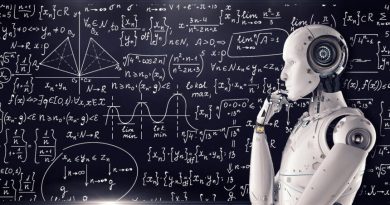The Qubits Research
Quantum bit research
We have been researching the progress of new types of quantum processors and quantum computers for many years.
⍟ The revolutionary quantum computer ⍟
⭐ A.I. Research
⭐ Chatbot OpenAi Updates
⭐ Quantum mechanical processors
Qubits (quantum bits) are the basic building blocks of quantum computers. They are similar to classical bits in conventional computers, but they use the properties of quantum physics to be able to hold several states simultaneously.
A classic bit can either have the value 0 or 1. A qubit, on the other hand, can have both a state of 0 and 1 at the same time, which is known as superposition. A qubit can also be in a state of 0 and 1 at the same time, but with different probabilities.
Another important concept related to qubits is entanglement. This refers to the state in which two or more qubits are entangled with each other and their states are connected, even if they are far apart. This makes it possible for quantum computers to solve certain types of problems very quickly and efficiently that would be impossible or very difficult for classical computers.
Quantum mechanical computers
Since quantum physics is very complex, it is difficult to maintain and control qubits, which makes the development of quantum computers difficult. Nevertheless, scientists and technology companies have made significant progress in recent years and quantum computers are expected to play an important role in many areas of science and technology in the future
Quantum computers represent one of the most exciting and promising developments in technology and are expected to be able to solve certain tasks much faster and more efficiently than conventional computers.
An important advantage of quantum computers is their ability to work in parallel in certain applications, which can significantly reduce computing time. One example of this is the so-called "quantum search", in which a quantum computer should be able to search for a specific data record in an unsorted database in a time that would be unimaginable for a conventional computer.
Another important field of application for quantum computers is cryptography.
Technology of the future
Quantum computers are a promising technology of the future based on the principles of quantum mechanics. They differ from conventional computers in that they are not only based on binary values (0 and 1), but can also achieve states such as "0 and 1 simultaneously". This enables them to solve certain tasks much faster than conventional computers.
One of the most important areas of application for quantum computers is cryptography. For example, they could be used to calculate so-called "prime numbers" very quickly, which are used to encrypt data. However, it is also conceivable that quantum computers will be used in other areas such as chemistry, medicine or finance in the future.
Another important area of application for quantum computers is the simulation of complex systems. For example, they could be used to simulate processes in nature, such as photosynthesis or the formation of tornadoes. The development of new materials or medicines could also benefit from quantum computers.
However, the development of quantum computers is still at an early stage and there are still many challenges to overcome. One of these is "quantum correction", which must ensure that errors in the calculations can be corrected. Another challenge is to generate the necessary cold required for quantum computers to function.
Despite these challenges, scientists believe that quantum computers will play an important role in many areas in the future. However, it remains to be seen how quickly the development of quantum computers will progress and which applications will prove to be the most practical in the future.




